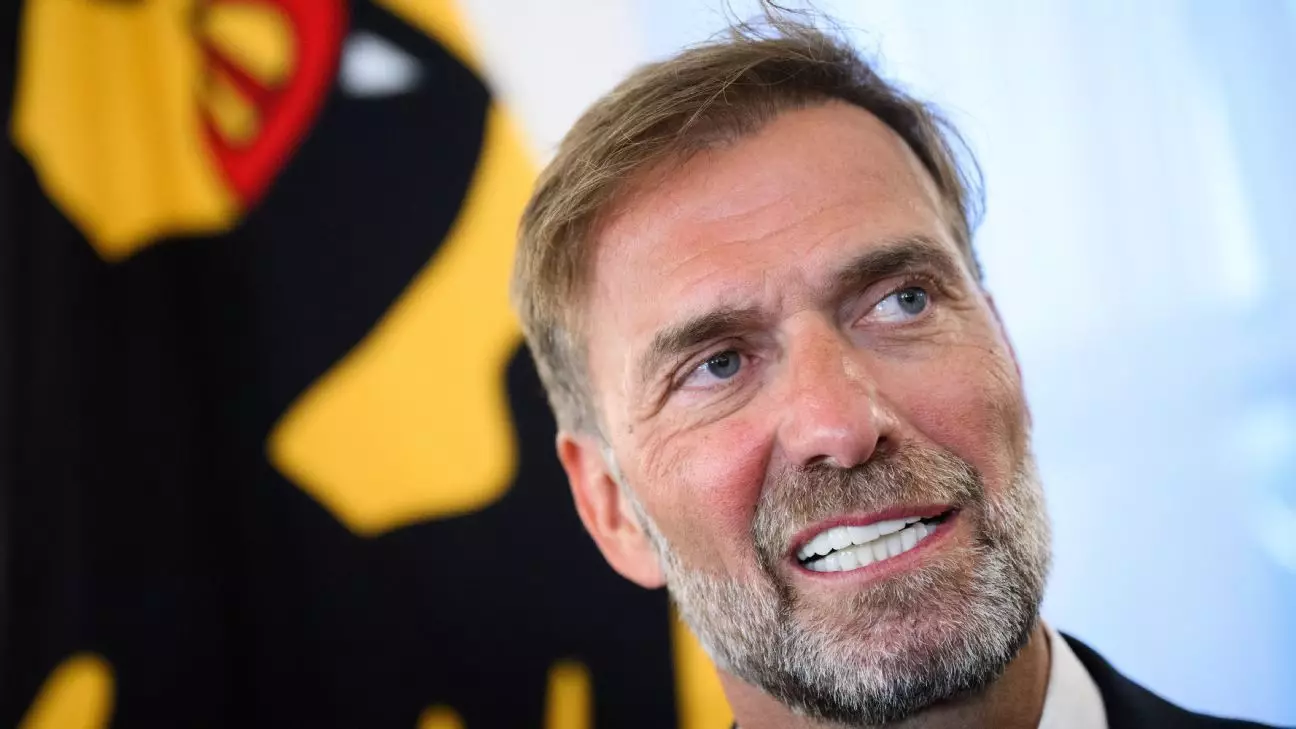Jürgen Klopp has undoubtedly made a lasting impact on the world of football, particularly during his time at Liverpool, where he led the team to remarkable successes, including a UEFA Champions League title and a long-awaited Premier League victory. His managerial journey has been characterized by a distinctive, passionate approach that emphasizes collaboration and high-pressing tactics. However, with his recent announcement to head Red Bull’s global football operations, the football community has found itself grappling with mixed emotions. This surprising career pivot raises questions about loyalty, corporate involvement in sports, and the implications of his new role on his legacy.
In an interview on a podcast hosted by former professional Toni Kroos, Klopp addressed the backlash stemming from his decision to join Red Bull, a company often criticized for its corporate influence in football, particularly in Germany. Fans of his former clubs, like Borussia Dortmund and Mainz, have voiced strong opposition to his choice. The sentiment is rooted in a deeply held belief that Red Bull’s approach undermines the integrity of the sport, prioritizing profit and brand image over traditional values. Klopp attempted to quell the unrest by asserting, “I didn’t want to step on anybody’s toes, definitely not.” His explanation seems sincere, yet it simultaneously complicates his relationship with fans who view his decision as a betrayal.
While it is commendable that Klopp cares about the feelings of the supporters, the stark reality is that fans often have conflicting interests and desires. The complexities of modern football, where lucrative sponsorship deals and club ownership by faceless corporations frequently occur, challenge authentic fan affiliations. Klopp’s sentiment, while well-meaning, perhaps highlights the dilemma that modern managers face when navigating their careers amidst corporate dynamics.
The rising presence of corporations in global sports has sparked heated debates. Red Bull, with its involvement in numerous teams, including controversial entities like RB Leipzig, exemplifies a model that many fans perceive as an intrusion on the tradition of football. The frustration from supporters crystallizes into the sentiment that club allegiance is increasingly contingent on financial might rather than community root. Klopp’s assertion that he has never critically viewed Red Bull’s role in football points to a divide between his perspective and that of the loyal fan bases of his former clubs.
While Klopp sees an opportunity for growth and development in a region where football traditions are battling to resurface, many supporters contest that such a relationship with a corporate structure erodes the grassroots essence of the sport. In doing so, Klopp walks a narrow line between ambition and alienation.
Despite the backlash, Klopp’s decision marks a new direction in his career, post-Liverpool. His admission of taking a “long break” had fans believing he would embark on a period of reflection before taking on another coaching role. Interestingly, the allure of joining Red Bull seemed too appealing to resist, as he expressed in the podcast. He views this position chiefly as that of an advisor, aimed at nurturing coaches across the various clubs under the Red Bull umbrella.
However, his desire to support coaches also mirrors his own experiences as a manager. Klopp recognizes the isolating nature of coaching in high-stakes environments and aims to foster a collaborative culture to support future leaders within the game. Yet, this aspiration doesn’t absolve him of the scrutiny that comes from his newfound affiliation. As he navigates this unconventional role, the balance between his intentions and public perception hangs precariously in the air.
As Jürgen Klopp steps into the realm of corporate football management, he finds himself at a critical juncture. The moves of a revered figure in the sporting community are being closely examined through the lens of loyalty versus ambition. The emotional responses from dedicated fans underline the complexity of what it means to be a football purist in an increasingly commercialized landscape.
Will Klopp’s endeavor lead to an evolution of corporate engagement in football, or will it reinforce the divide between fans and clubs? Only time will tell. Yet, as Klopp embarks on this new journey, he must tread carefully through the murky waters of corporate football, balancing ambition with the values that endeared him to millions worldwide.

